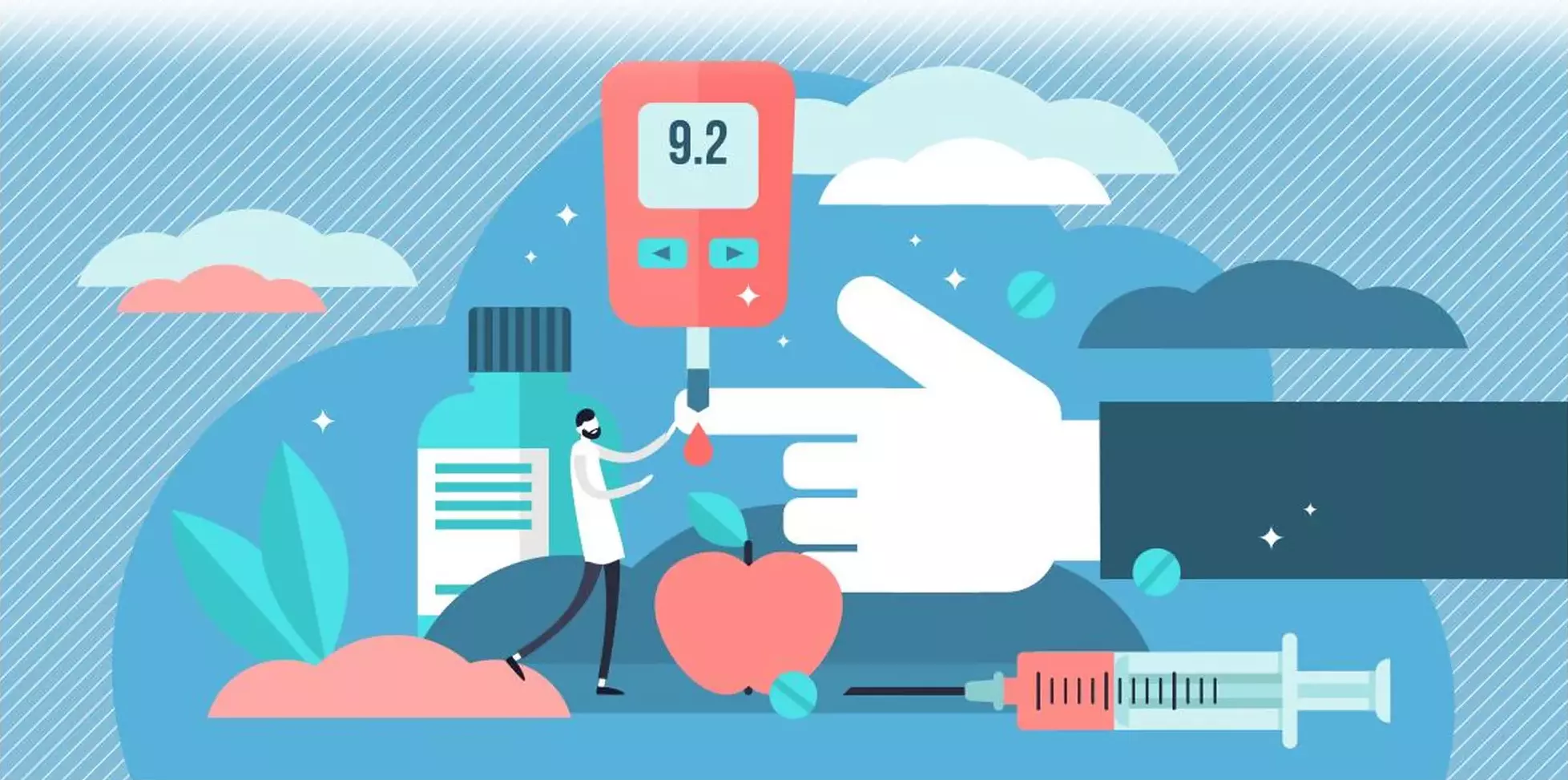According to research, people who have recovered from COVID-19 are at a higher risk of developing type 2 diabetes. Researchers are still trying to figure out how and why this is happening. Here’s what we know so far and what you can do to lower your risk. Can a COVID-19 infection have long-term health consequences for diabetics, such as increasing their risk of heart disease?
Dr. Dinender Singla of the College of Medicine believes that the genetic makeup of diabetes patients or those predisposed to the disease makes them more vulnerable to post-COVID inflammatory conditions affecting the heart and brain.
“We believe that COVID-19 can alter a person’s genetic makeup, which can enhance disease proliferation and cause further deterioration in diabetes and associated heart disease,” Dr. Singla, the AdventHealth Chair of Cardiovascular Science at the College of Medicine, explained.
Dr. Singla has focused much of his research on heart failure, diabetes, and inflammation. He investigated the mechanisms and potential effects of COVID-19 on patients with high-risk diabetes, as well as the virus’s ability to advance the disease, leading to inflammation and heart failure, in a recent article published in the American Journal of Physiology-Heart and Circulatory Physiology.
Our goal is to look into whether there is a difference in blood composition or variations in cytokines – proteins that affect communications between cells – compared to the non-COVID diabetic patients.
Dr. Singla
Dr. Singla believes COVID-19 could have three major long-term effects on patients. “The first is cognitive dysfunction, which can progress to Alzheimer’s disease. Second, it can improve diabetes in pre-diabetic patients or conditions. Third, it can aggravate diabetes complications such as cardiomyopathy or muscle dysfunction.”
Dr. Singla hypothesizes that some diabetic patients who were infected with COVID-19 developed a different cellular composition in their blood than diabetic patients who were never infected with COVID. The next step in his research will be to compare specific cellular differences between diabetics with and without COVID infection.
“Our goal is to look into whether there is a difference in blood composition or variations in cytokines – proteins that affect communications between cells – compared to the non-COVID diabetic patients,” Dr. Singla said. “If any differences are noted, then we would need to examine what kind of diseases they could potentially cause or enhance in those patients.”

COVID-19 has infected over 600 million people worldwide, and while vaccines have rendered the virus less dangerous than it was two years ago, Dr. Singla says there are still many unanswered questions about COVID’s long-term impact on health.
“For example, if someone is genetically predisposed to developing heart disease or Alzheimer’s disease, will that person develop heart disease or Alzheimer’s disease sooner than they were predisposed to?” Dr. Singla stated, “How severe will their disease be, and will it be different in people who contracted COVID-19 or did not?”
Dr. Singla stated that he is currently working to secure funding to investigate the unanswered questions left by the virus.
“We want to know if diabetes will be present in COVID-19-infected patients in 10 or 20 years.” Dr. Singla stated, “Will they develop a specific type of cardiomyopathy or diabetic muscle pain, and will the severity of those diseases be greatly increased? With this information, we will be one step ahead in developing therapeutics and treatments to manage any disease variations that may arise.”
















